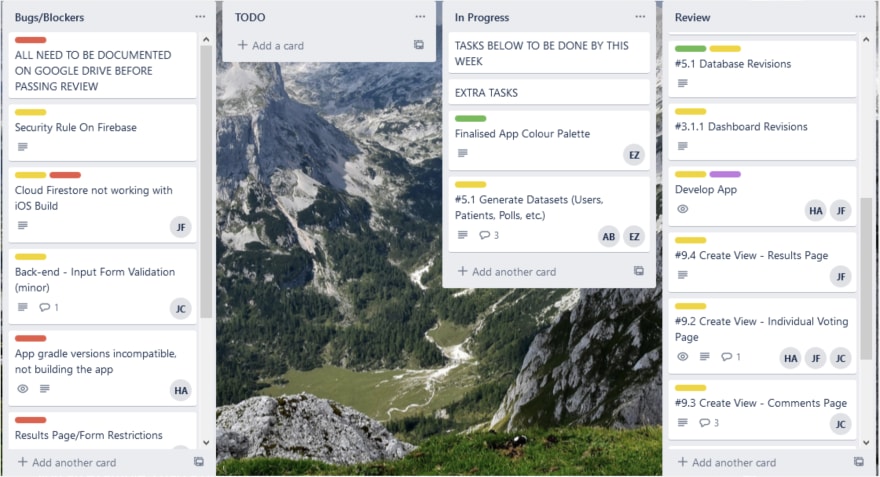Whether you’re a studying computer science/software engineering or you’re a student currently doing a project as part of a group you will know the frustrations when it comes to working with others. Having just graduated from university where I studied Software Engineering, I have had my share of experiences from working in a group. At times it feels like you’re the only one trying to complete the task at hand (and sometimes this is true!), however, I have some tips and tricks from my experiences working within groups during university and in industry as a software developer intern which should help you with your next group project.
Project Planning
Effective planning. Two words which seem simple enough when said but are rarely an occurrence during university group projects. By effective I mean, a clear outline of what needs to be done, an organised approach towards implementing the agreed tasks and some form of tracking tasks through their various phases. This along with documentation whilst on the project go a long way in organising the entire project and will help when it comes to writing the report (which is a common deliverable in university) at the end of the project.
A tool which helped me in this aspect is Trello, a free Kanban style list making web application where you create headings for lists and then each item is a card under that list. For example, for a group project in my final year here is some of the headers we used to simplify our project planning and to clearly see what tasks needed to be done, what we were stuck with, what was in progress and what has been completed.
Screenshot of Trello, including headers such as blockers, to do, in progress and completed/review
Implementing this in your next group project, whether that be a software project or a report, is as simple as signing up and spending 5 minutes creating headings for your lists. As the project progresses, you can add more and more tasks under each list and assign them to members of your group. Once the project is underway, it is easy to go back and see tasks in each state (to do, in progress or completed) and build a report/documentation without having to remember everything from when you first started the project.
Communication
We all know communication is important when it comes to working in a group in any setting, but do we always put this first? A lot of issues which arise as part of working in a group always start small; someone cannot make it to a group meeting because of prior commitments, a member of your group taking longer than expected on a particular task or even a lack of understanding of the overall project.
Many of these issues can be remedied with clear communication, let me give you an example. I had a group project in university where we had to develop a cross-platform mobile application. A member of my group was taking longer than expected on a software task, baring in mind that the language and framework we decided to use was brand new to us all. Instead of constantly asking if the task was complete, I ensured they had the support to complete the task, or the option to pass the task onto someone else and start on a different one. Not only does this limit confrontation, it also facilitates understanding and more of an ‘all for one’ spirit within the team.
This was after a year of working as a software developer intern therefore I had a little more experience in working within a group setting. So, had this been prior to my year in industry, I most likely would have just picked up the task on my own and completed it without asking anyone in my group, leading to a lack of communication and the possibility of the task being done twice.
Tools which helped me on the communication aspect of teamwork is Slack, a messaging platform, or even simpler WhatsApp group messaging. Whatever works best for your team, if you know each other a WhatsApp group may be more convenient or if you don’t know each other well Slack is a great alternative and you don’t need to exchange mobile numbers.
Some lessons to take away from this:
Facilitate understanding over judgement, especially in a new team.
Let your team play to their own strengths, rather than forcing them to pick up tasks they aren’t comfortable with.
Consider your team as a start-up, have a cross-functional team where there is a mix of skills within your group.
If you want to learn more about working well in a small group/company, and some more insights I highly recommend the book The Lean Startup by Eric Ries. Get the free audio book with an Audible trial, which you can cancel once you have your book!



Top comments (0)